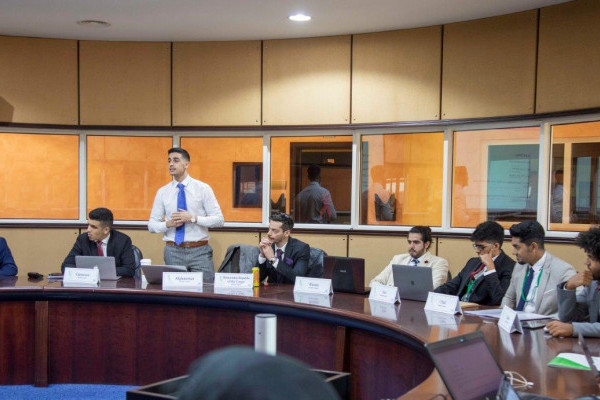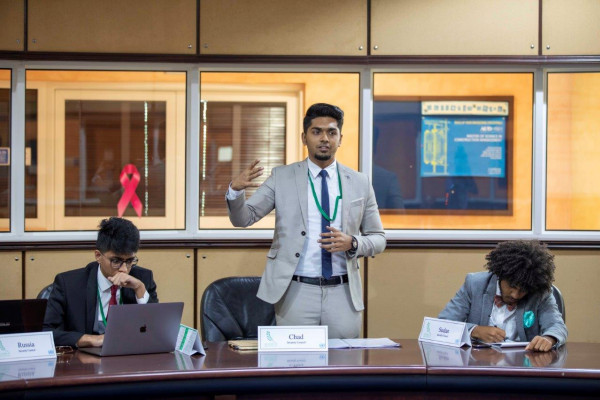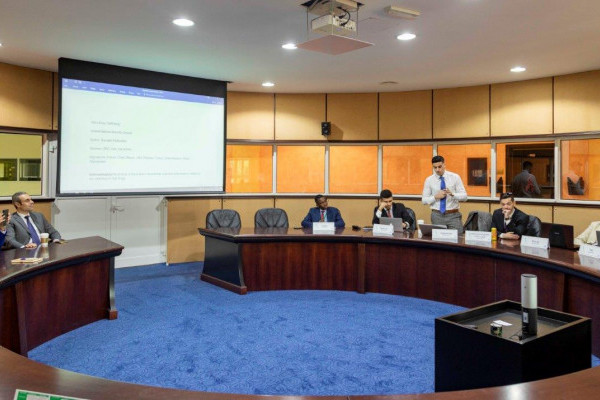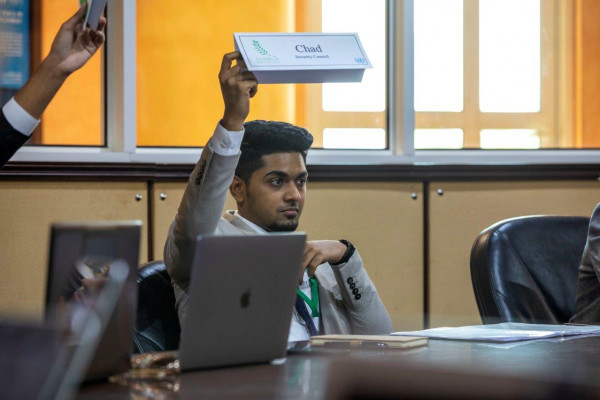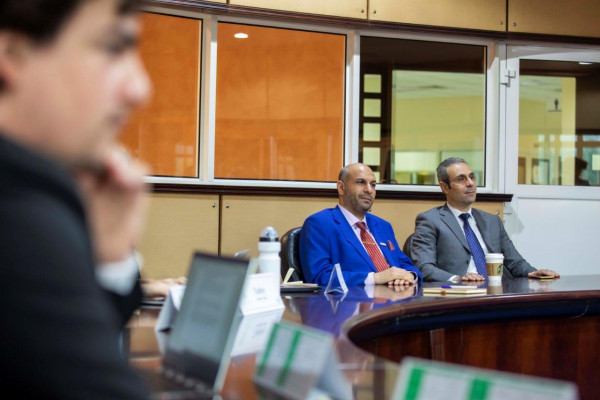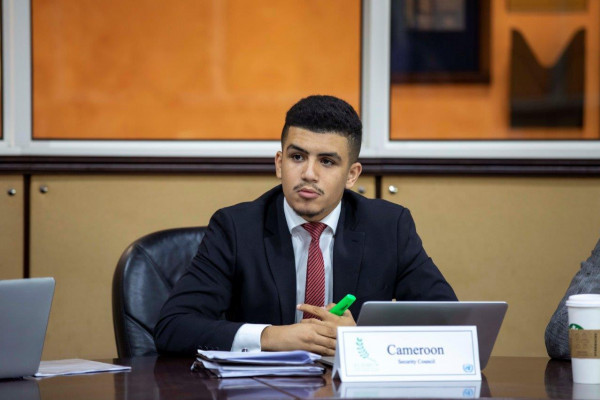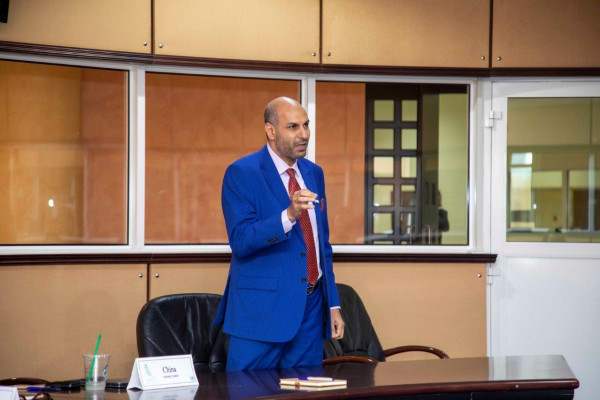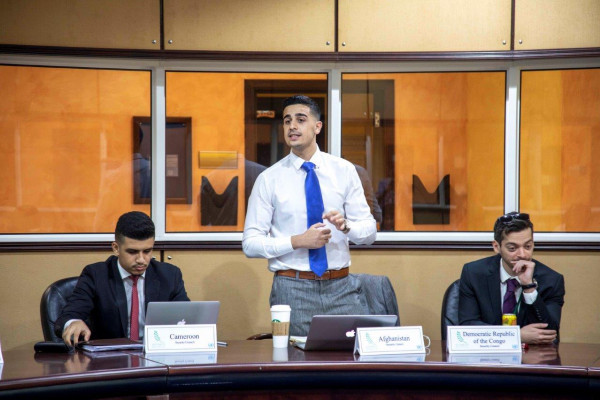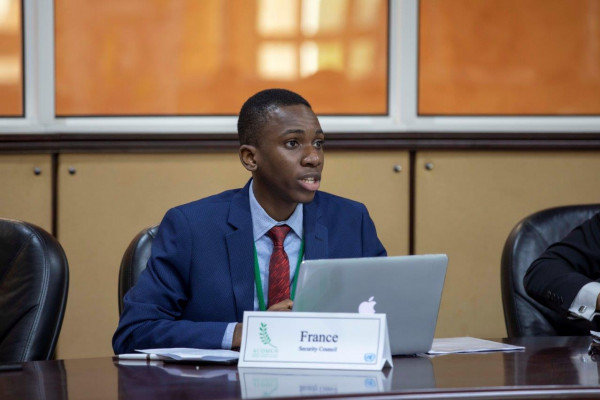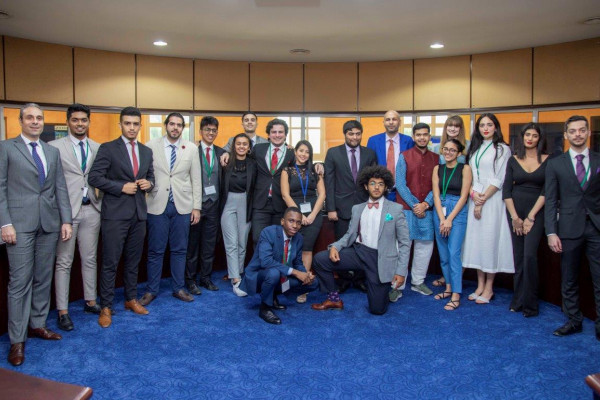AU Students Debate World Hot Issues at Model UN
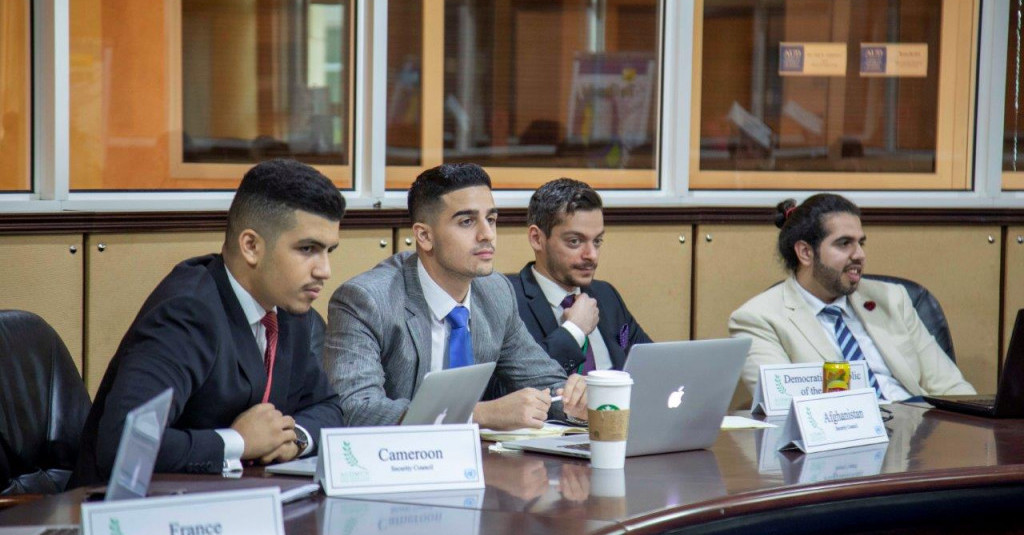
A delegate of Ajman University (AU) students debated over a number of world hot issues as part of their participation in the Model United Nations (MUN) Conference.
The three-day educational simulation, hosted by the American University in Dubai, is part of the AU Leadership Development Program organized by the Office of Student Life at the Deanship of Student Services, AU.
The program is aimed to develop students' leadership skills and create an attractive environment for leadership and creativity, according to Dr. Nahla Al Qasimi, Dean of Student Services. “It also provides students with a precious opportunity to meet and exchange knowledge and experiences.”
The congress is a simulation of the United Nations, where students act as ambassadors of their respective countries and discuss the issues of concern to those countries on the UN agenda, she added.
“AU students have had a unique opportunity to receiving a specialized training on the skills of diplomatic work, public speaking and critical thinking.”
“The students were also trained on how to deal with problems, find appropriate solutions, be self-confident, and get used to the United Nations procedures.”
Students need to participate in more of such events, she underlined. “This qualify them to be ambassadors to their countries in the future, and gives a boost to the objectives of the Leadership Development Program.”
Participants in Model United Nations conferences, known as delegates, are placed in committees and assigned countries to represent, or occasionally other organizations or political figures, where they represent members of that body.
Delegates are assigned countries before the conference, along with receiving a topic, or topics, that their committee will discuss. Delegates conduct research before conferences, formulate positions and come up with policy proposals that they will then debate with their fellow delegates in the committee, staying true to the actual position of the member they represent.
At the end of a conference, the delegates will vote on written policies, called “draft resolutions”, with the goal of passing them with a majority vote. The best-performing delegates in each committee, as well as delegations, are sometimes recognized with awards.
